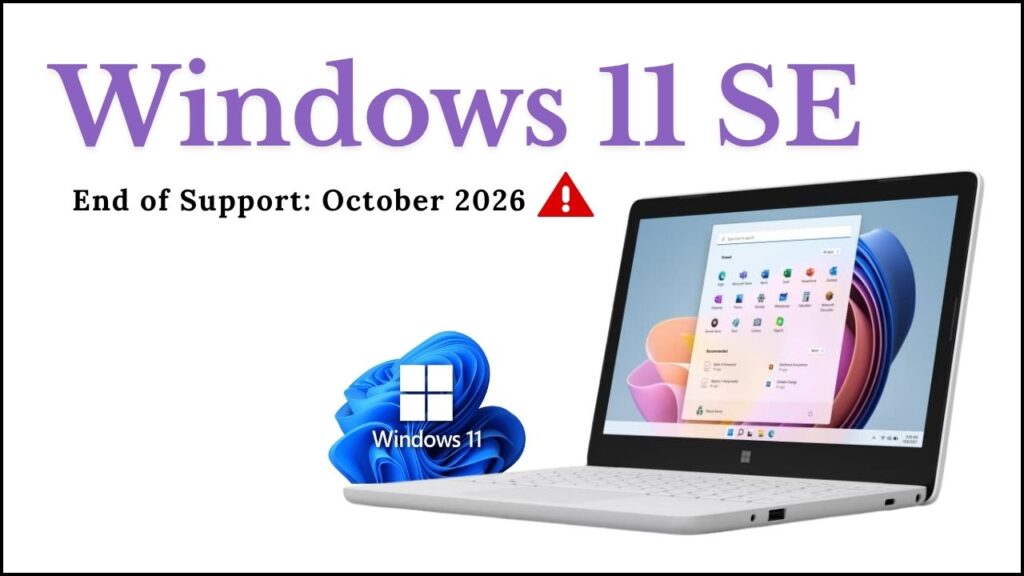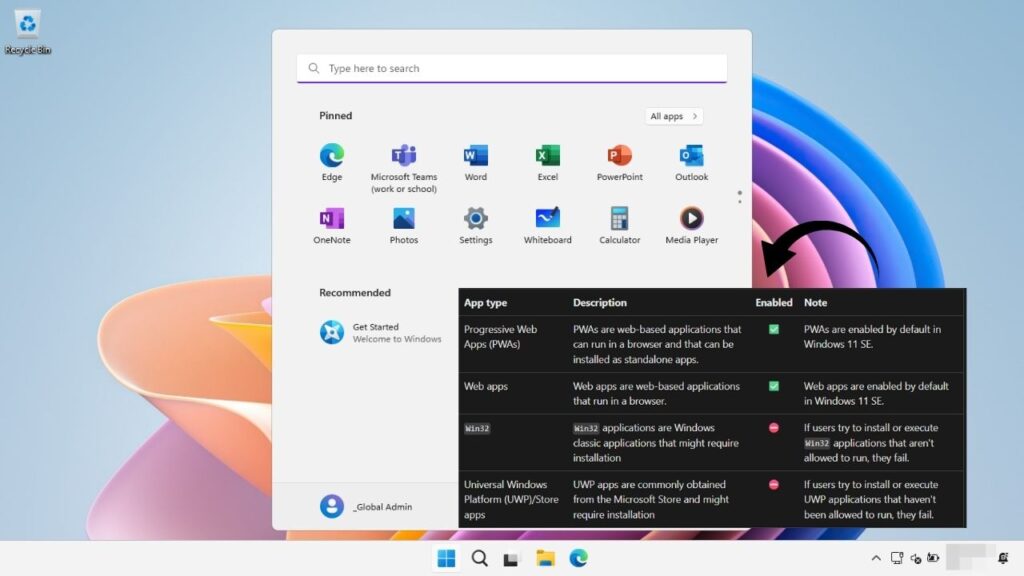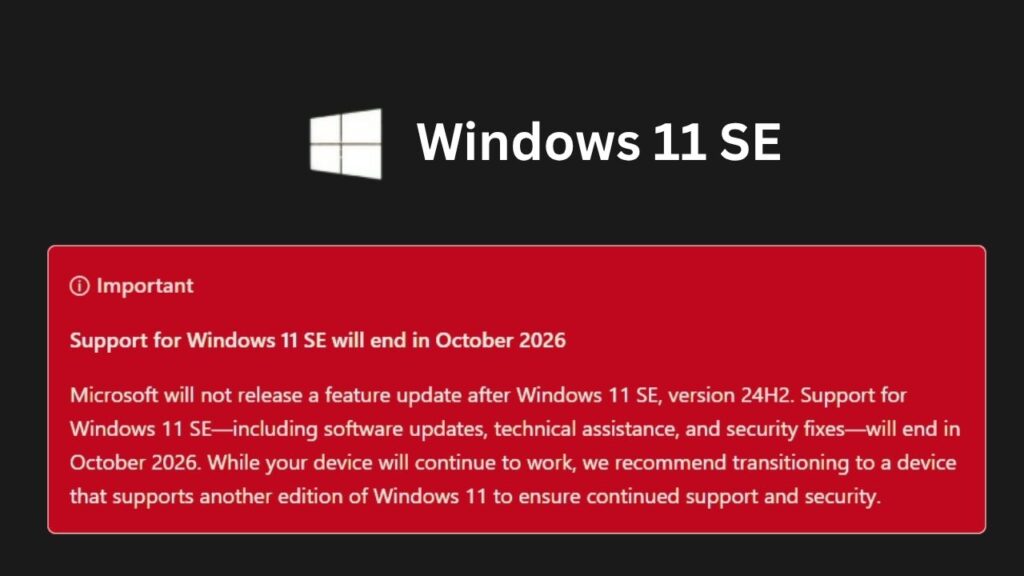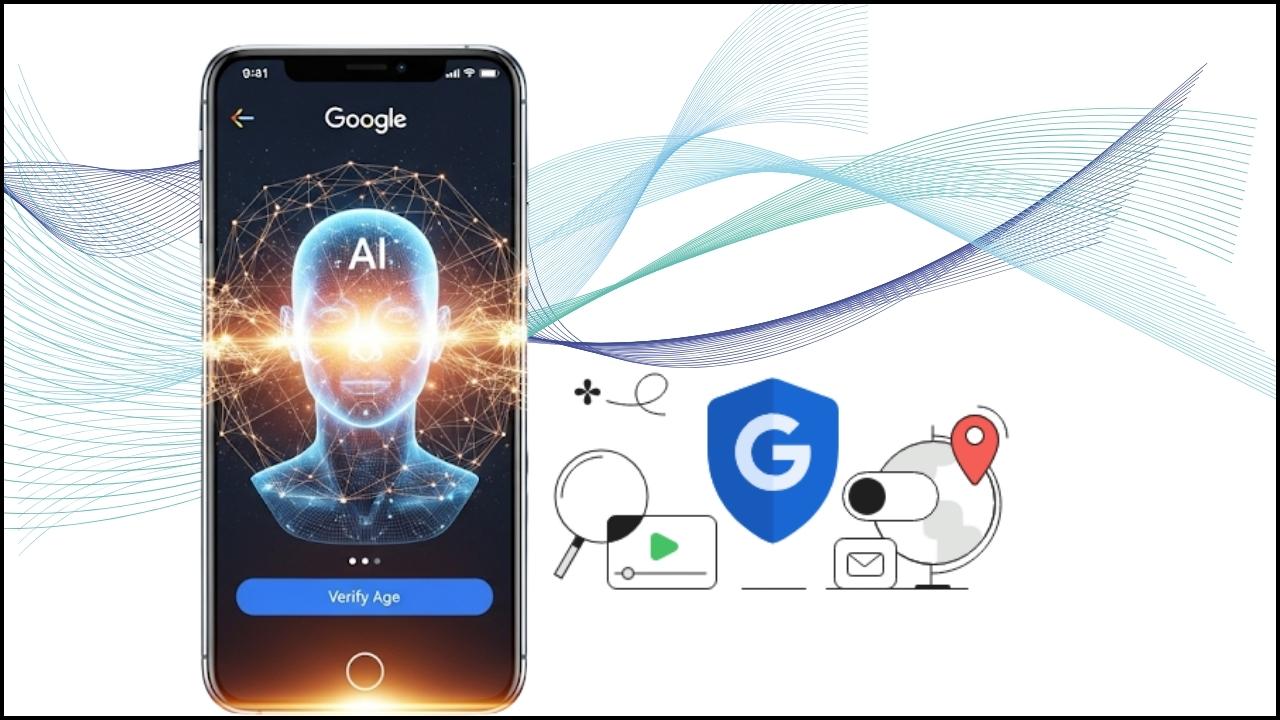Microsoft has officially announced that it will end support for Windows 11 SE, a lightweight, cloud-first operating system tailored specifically for the education sector. Support for Windows 11 SE—including all software updates, security patches, and technical assistance—will cease in October 2026. While devices running this OS will still function after support ends, they will no longer receive critical updates, which can expose them to security vulnerabilities. Schools and users are encouraged to transition to other fully supported editions of Windows 11 to maintain security and performance.

Windows 11 SE was launched in 2021 to provide a simple and affordable alternative targeting K-8 classrooms—kindergarten through eighth grade students. Its goal was to rival Google’s Chromebooks, which dominate the education market with their cloud-focused simplicity and low cost. Microsoft released devices like the Surface Laptop SE, designed and priced for students and educational institutions, but Windows 11 SE struggled to gain significant traction against Chromebook’s widespread adoption.
Microsoft Bows to Chromebook Pressure
| Topic | Details |
|---|---|
| Product | Windows 11 SE |
| Purpose | Lightweight OS for education, competing with Chromebooks |
| Launch Year | 2021 |
| End of Support | October 2026 |
| Devices | Surface Laptop SE and other low-cost education PCs |
| Main Competitor | Google Chrome OS (Chromebooks) |
| Reason for Discontinuation | Poor market adoption; Chromebook dominance |
| Future Direction | Focus shifted to full Windows 11 editions |
| Official Microsoft Lifecycle Page | Windows 11 Home and Pro – Microsoft |
Microsoft’s decision to end support for Windows 11 SE marks a clear pivot away from trying to rival Chromebook’s dominance in schools with a niche OS. Instead, Microsoft will focus on the full Windows 11 platform, which delivers more flexibility and power across devices. For schools and educational users, preparing ahead with device upgrade plans and user training will ensure a smooth transition and continued access to modern, secure, and productive computing environments.
What Was Windows 11 SE?
Windows 11 SE was created as a cloud-first, streamlined edition of Windows 11 specifically for K-8 students and educational environments. Unlike the full Windows 11, it was designed to be simple, manageable, and secure with a user interface tailored to reduce distractions and focus on learning.

Key Features of Windows 11 SE
- Simplified Interface: The interface was clean and locked down. Programs opened in full screen, multitasking was supported but limited (only allowing two apps side-by-side), and distracting widgets and app stores were removed.
- Cloud Integration: Seamless use of Microsoft 365 productivity tools, including Word, Excel, PowerPoint, OneNote, and OneDrive for file storage and synchronization. Students could work offline and sync assignments automatically when back online.
- Device Management: Built for ease of IT management with cloud-powered management via Microsoft Intune for Education, allowing administrators to control deployments and maintain security remotely.
- App Access Control: Windows 11 SE did not include the typical Microsoft Store. Instead, app installation was restricted and controlled by school administrators, allowing only approved apps essential for education like Zoom and Chrome.
- Low Hardware Requirements: Designed to run on affordable laptops with modest performance capabilities, such as the Surface Laptop SE, which offers all-day battery life and easy repairability.
Who Used Windows 11 SE?
Windows 11 SE targeted schools and educational organizations purchasing low-cost devices for students from kindergarten through 8th grade. Its biggest challenge was competing with Chromebooks, which had already secured dominance in U.S. and global schools due to their low cost, simplicity, and integrated Google ecosystem.
Reasons for Microsoft’s Discontinuation of Windows 11 SE
1. Chromebook Market Dominance
Chromebooks have long been the go-to devices in schools, favored for their affordability, ease of use, and integrated cloud services powered by Google Workspace for Education. Despite Windows 11 SE’s tailored design and integration with Microsoft’s cloud apps, it failed to convince enough schools to switch or adopt this OS to erode Chromebook’s market share.
2. Limited Adoption and Ecosystem
The Windows 11 SE ecosystem was limited because it restricted app installations and required IT administrators to control software access tightly. Many users preferred the broader software and app availability on Chromebooks or full editions of Windows, which offered more flexibility for students and schools.
3. Previous Similar Attempts Fell Short
Windows 11 SE followed other attempts by Microsoft to simplify its Windows operating system for specific markets, including the Windows 10 S Mode and Windows 10X. None of these efforts managed to significantly shift the balance of power in the education market dominated by Chromebooks.
4. Strategic Refocus on Windows 11
Microsoft is now concentrating on enhancing its core Windows 11 experience across Home, Pro, and Education editions. This unified approach supports a more flexible and feature-rich environment that works across many device types, freeing Microsoft from maintaining a niche OS line.
What Does End of Support Mean?

From October 2026 onward:
- Windows 11 SE devices will no longer receive security updates, leaving them vulnerable to viruses, malware, and cyberattacks.
- Microsoft will stop issuing feature updates and technical support.
- Devices will still operate but may become incompatible with newer apps or services.
- Schools and users are highly recommended to upgrade or replace their devices with versions running supported Windows editions like Windows 11 Education or Windows 11 Pro.
A Step-by-Step Guide to Transitioning From Windows 11 SE
Step 1: Inventory Existing Devices
Identify which laptops or PCs are running Windows 11 SE in your environment. Take note of their age, performance specs, and condition.
Step 2: Verify Upgrade Paths
Many Windows 11 SE devices can be upgraded to full Windows 11 editions. Check device compatibility to ensure they meet system requirements for Windows 11 Education, Pro, or Home editions.
Step 3: Backup Data
Ensure all user data, especially assignments, projects, and personal files, are backed up—preferably to OneDrive or other cloud storage—to prevent data loss during the transition.
Step 4: Plan Upgrades or Replacement
Work with school IT teams and vendors to plan upgrades or procure new devices if required. Consider total cost of ownership, device lifespan, and student needs.
Step 5: Train Students and Staff
Prepare teachers, administrators, and students for changes in the user interface and available features. Offer training sessions to familiarize users with new tools and Windows 11’s expanded capabilities.
Understanding the Windows 11 Family
Here’s a simple overview of Windows 11 editions relevant to education:
- Windows 11 Home: Meant for general consumers with basic features.
- Windows 11 Pro: Includes enhanced security and management tools for business and advanced users.
- Windows 11 Education: Designed specifically for educational institutions, featuring education-centric tools and simplified management.
- Windows 11 SE: The discontinued lightweight, cloud-focused edition for K-8 education (support ending in 2026).
For most schools currently using Windows 11 SE, Windows 11 Education or Pro will be the ideal upgrade paths for a full-featured experience with ongoing support.







